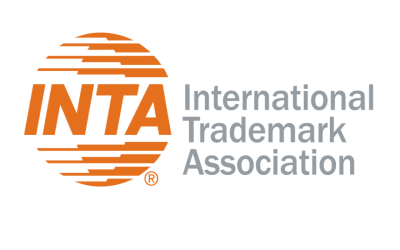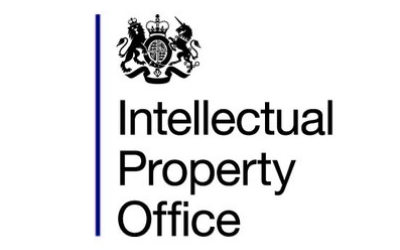The Delhi High Court holds that the word ‘Yatra,’ meaning ‘journey’ or ‘travel’ in Hindi, is generic and descriptive and therefore cannot be monopolized as a trademark in relation to travel services.
The ruling came in Yatra Online Limited v. Mach Conferences and Events [CS(COMM) 1099/2024], whereby the interim injunction sought by Yatra Online Limited (Plaintiff), to restrain Mach Conferences and Events Limited (Defendant) from using the marks BOOKMYYATRA and BOOKMYYATRA.COM, as they are similar to their mark YATRA.COM.
Background
The Plaintiff, a prominent travel portal, brought a lawsuit for trademark infringement, passing off, unfair competition, and dilution, objecting to the Defendant’s use of the marks BOOKMYYATRA and BOOKMYYATRA.COM being deceptively similar to its YATRA formative marks, which are likely to cause confusion among consumers. The Plaintiff initially obtained an ex parte interim injunction restraining the Defendant from using the impugned marks until it was set aside on August 22, 2025.
Plaintiff’s contentions
- Statutory rights in the mark YATRA: The Plaintiff claimed that it has been using the mark YATRA since 2006 and is the registered proprietor of several marks, being YATRA.COM, YATRA WITH DEVICE, YATRA FREIGHT, etc., wherein the word ‘Yatra’ is the dominant element.
- Distinctiveness and secondary meaning: The Plaintiff claimed that the mark YATRA is distinctive, well-known, and exclusive to the Plaintiff. Owing to nearly two decades of continuous and extensive use, substantial promotional and advertising activities, the mark YATRA has acquired a secondary meaning and is well known.
- Likelihood of confusion: The Defendant’s adoption/use of the impugned marks for identical service of travel booking and related activities created a likelihood of confusion, misrepresentation, and dilution of the Plaintiff’s goodwill.
- Bad faith: The Plaintiff alleged that the Defendant’s use of the impugned marks was in bad faith and deliberately intended to cause consumer confusion and ride on Plaintiff’s goodwill.
- Anti‑dissection rule: The Plaintiff contended that the ‘anti‑dissection’ rule doesn’t prevent the Court from recognizing ‘Yatra’ as the dominant element. It asserted that both the principles of anti-dissection and ‘dominant mark’ are complementary and not contradictory.
- Disclaimers and public perception: Despite disclaimers in some registrations stating, “No exclusive right for the word YATRA,” the Plaintiff asserted that ‘Yatra’ is the dominant and essential feature of their trademarks. They argued that the disclaimers do not affect the public perception of the mark.
- Balance of convenience: The Plaintiff argued that the balance of convenience favors them as the Defendant has not yet launched its business under the impugned marks and can operate under a different name without prejudice.
Defendant’s contentions
- ‘Yatra’ is generic and descriptive: The Defendant argued that ‘Yatra’ is a commonly used Hindi word meaning ‘journey’ or ‘pilgrimage,’ making it highly descriptive of the services provided (travel and tours), thus, it cannot be exclusively monopolized by a single entity.
- No secondary meaning: The Plaintiff failed to show that the public associates ‘Yatra’ exclusively with its services. It argued that there is no evidence to suggest that the primary significance and meaning of ‘Yatra’ is replaced to identify the word exclusively with the Plaintiff.
- Commonly used term: Several third parties in the travel industry use the word ‘Yatra’ in the course of their business. The Plaintiff is unfairly trying to monopolize the generic word ‘Yatra.’
- Explicit disclaimer: The Defendant argued that Plaintiff’s trademark registrations were for ‘device marks’ or ‘combination marks’ and not for the standalone word ‘Yatra.’ These registrations were granted with a disclaimer, and the Plaintiff cannot accept such a disclaimer at the time of registration and later attempt to seek exclusivity.
- Domain name squatting: The Plaintiff had registered 69 domain names, of which 67 were inactive, and had filed for trademarks across unrelated classes, suggesting a strategic attempt to block competition rather than genuine commercial expansion.
- Prejudice and loss: The Defendant claimed that they have suffered serious prejudice and considerable loss due to the ex parte injunction obtained by the Plaintiff, which has delayed the launch of their business.
Court’s ruling and observations
Generic words cannot be monopolized
The Court reiterated that generic or descriptive words cannot function as trademarks, as they fail to indicate the origin or source of the goods or services. Allowing a single entity to monopolise such a word would be contrary to public interest, as it would stifle competition.
Failure to prove secondary meaning
The Plaintiff failed to demonstrate that a substantial portion of the consuming public associated the term ‘Yatra’ exclusively with the Plaintiff or that the original meaning of the word is displaced. The presence of multiple businesses using similar names diluted any claim of distinctiveness.
Binding effect of disclaimers
The Court emphasized that the Plaintiff had accepted disclaimers in its trademark registrations, explicitly stating it had no exclusive claim over ‘Yatra.’ Such disclaimers are not procedural formalities but binding limitations that cannot be disregarded later.
‘Yatra’ is not well-known
The Court also rejected the claim that YATRA was a well-known mark, as no formal declaration was obtained from the Registrar.
No deceptive similarity
The Court compared the marks as a whole and concluded that the marks, BOOKMYYATRA and BOOKMYYATRA.COM, were distinguishable from the Plaintiff’s marks due to the prominent ‘BookMy’ prefix, which is a common and descriptive phrase in the online booking space.
No prima facie case
The Court held that ‘YATRA’ and ‘.com’ are both generic and descriptive, thus YATRA.COM is also generic. The Court found no prima facie case for passing off or infringement and vacated the interim injunction.
Our comment
The judgment clearly establishes that businesses cannot claim exclusive rights over culturally rooted or generic terms. Additionally, descriptive words, even with extensive use, cannot be monopolized to the detriment of public interest and fair competition. However, instead of making a conclusive finding at the preliminary injunction stage that the Plaintiff failed to prove secondary meaning, the Court should have allowed the Plaintiff to present evidence to demonstrate whether the mark YATRA had attained secondary meaning before arriving at a final decision on this matter.

Written by Ranjan Narula
Managing Partner, RNA, Technology and IP Attorneys

Written by Sabia Veqar
Practice Head, Trademarks Prosecution, RNA, Technology and IP Attorneys
You may also like…
COLD PALMER: lessons for athletes looking to protect their image
Modern athletes are brands. Just like traditional brands, they generate revenue through their image, licensing their...
INTA to bring its 2026 Trademark Administrators and Practitioners Meeting to Baltimore’s historic Inner Harbor
New York, New York—September 30, 2025—The International Trademark Association (INTA) is pleased to announce that it...
New Minister appointed with responsibility for intellectual property
The UK Intellectual Property Office (UKIPO) CEO has welcomed the new Minister. Kanishka Narayan MP has been confirmed...
Contact us to write for out Newsletter













